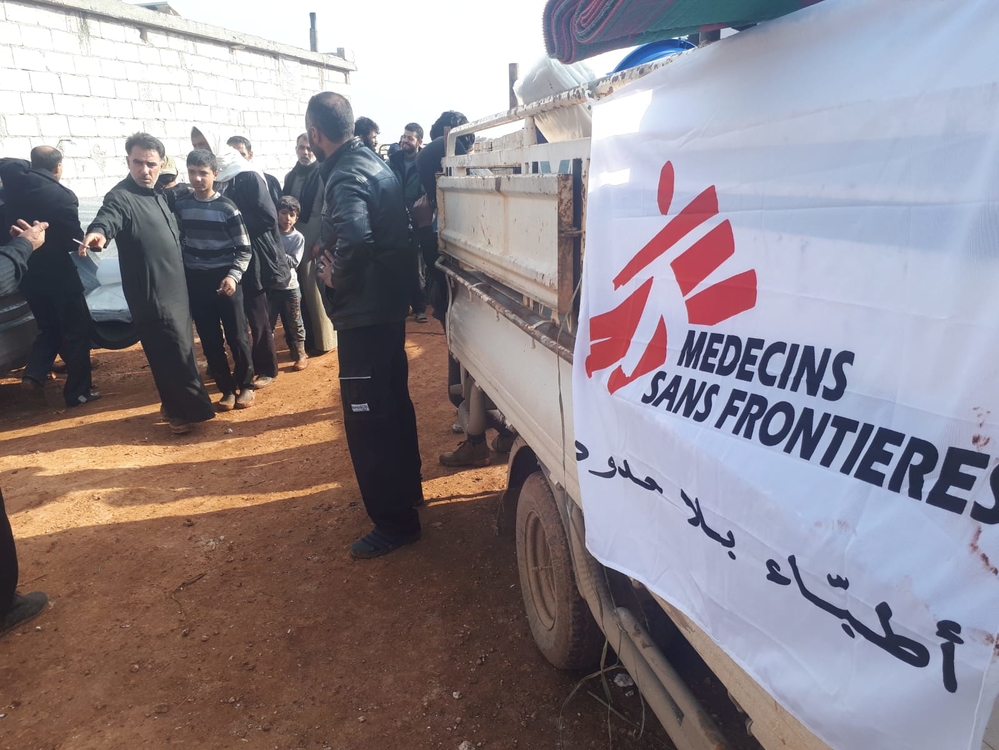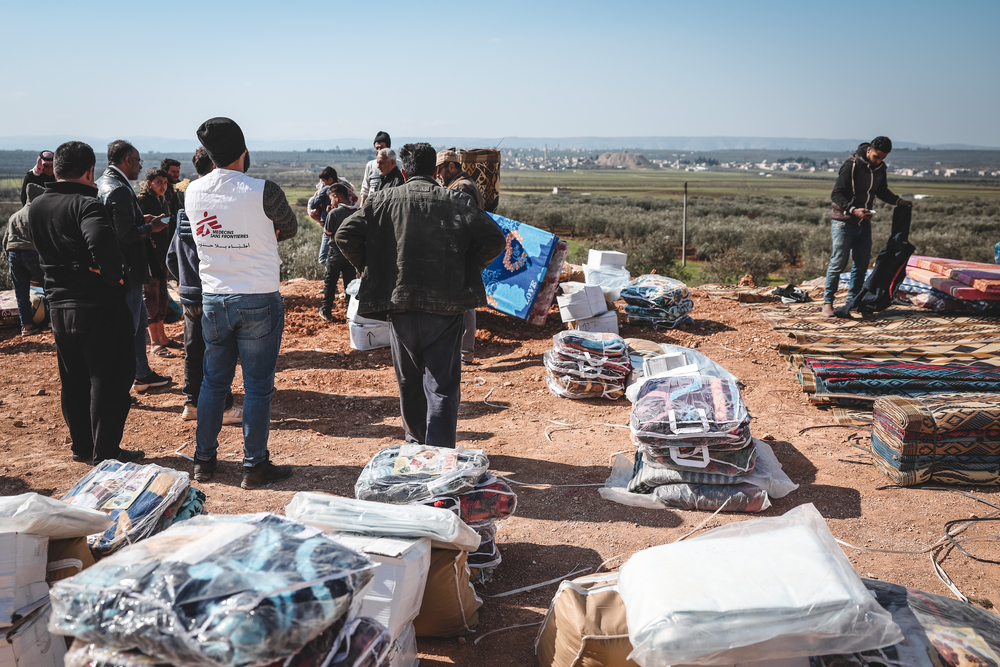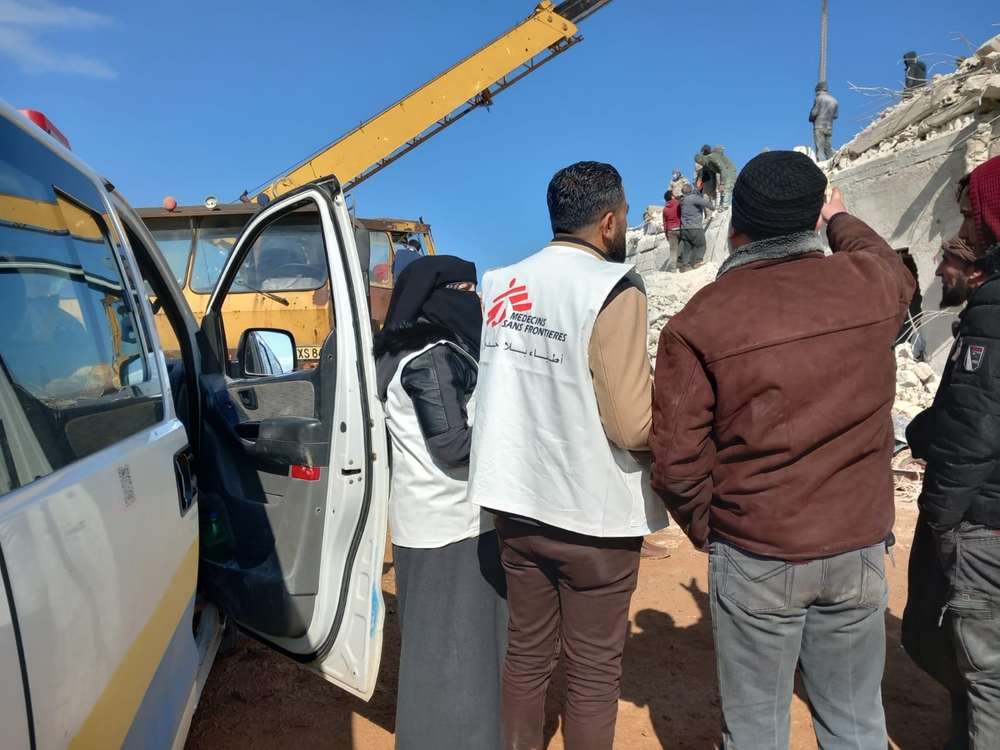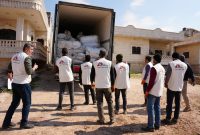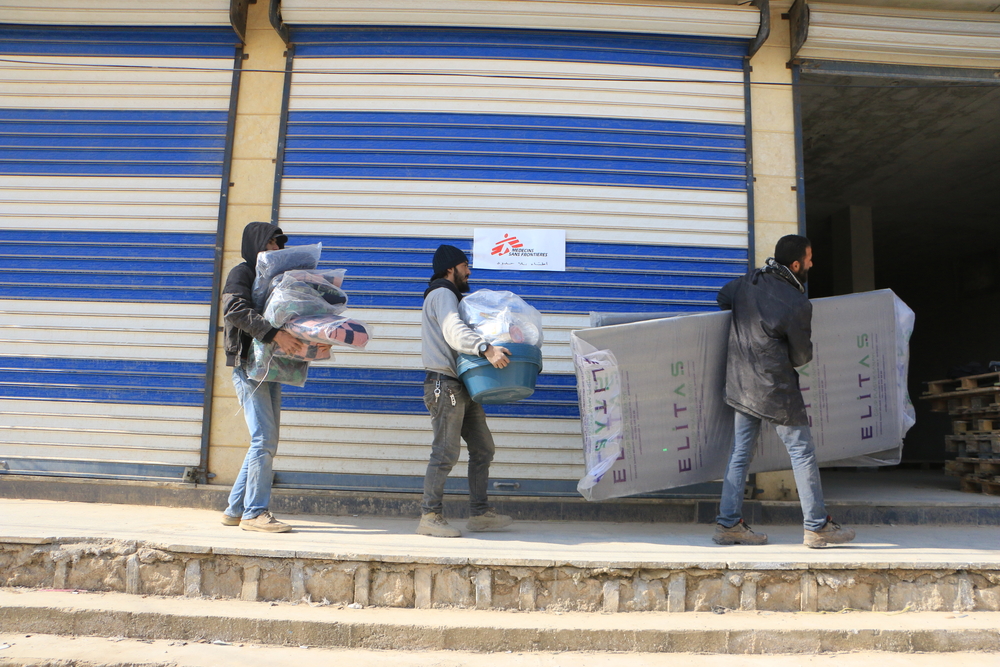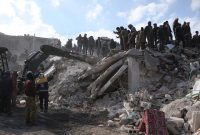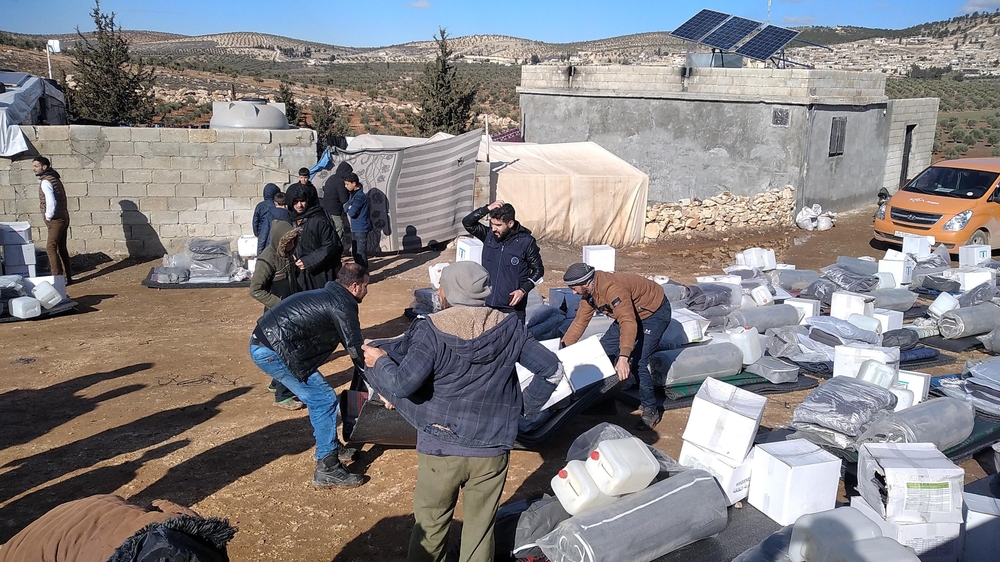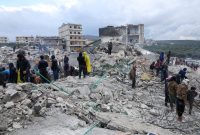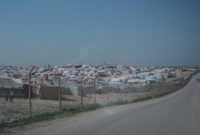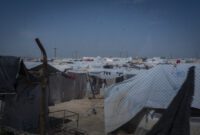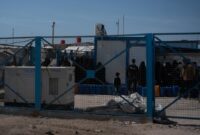Idlib, Syria: MSF to scale up its response as tensions reach a new peak
With thousands of people displaced by the military offensive on northwestern Syria’s Idlib province, international medical organization Doctors Without Borders/Médecins Sans Frontières (MSF) is planning step up medical assistance and aid distributions in response to their escalating needs. MSF is also asking Turkish authorities to facilitate the transit of staff and essential supplies into northwest Syria.
More than 948,000 people have been displaced by bombing and shelling on Idlib province since December 1, 2019, according to the UN. Displacement of people on this scale, and in such a short time, is unprecedented since the Syrian conflict began nine years ago.
Most of the displaced people are concentrated in a small area along the Turkish border and are facing a critical situation. Many have been displaced several times already and finding yet another place to stay can be a challenge.
The camps for displaced people are overcrowded and water and sanitation facilities are inadequate for the large numbers of people, raising the risk of water-related diseases.
There are too few tents to accommodate the new arrivals, forcing people to sleep in the open or in unfinished buildings and makeshift shelters. People urgently need essentials such as blankets, mattresses and winter clothes.
Some people have been in the camps for a couple of months, others arrived in recent weeks. MSF plans to significantly scale up its activities in order to respond to their needs. Over the coming weeks, MSF will focus on distributing essential relief items such as tents, cooking sets, floor mats and blankets. The supply of a first batch of tents and relief items is currently being organized for 800 displaced families. MSF is also planning to provide trauma care and to reinforce basic healthcare for the displaced people.
MSF’s ability to step up its assistance will depend on a steady flow of medical supplies and essential relief items reaching northwest Syria, and also on its ability to send in MSF staff to support their Syrian colleagues, most of whom are exhausted after years of working in extremely difficult conditions.
MSF has no permanent presence in Turkey. To be able to scale up its response, MSF asks all relevant Turkish authorities to facilitate the transit of staff and essential supplies into northwest Syria.
